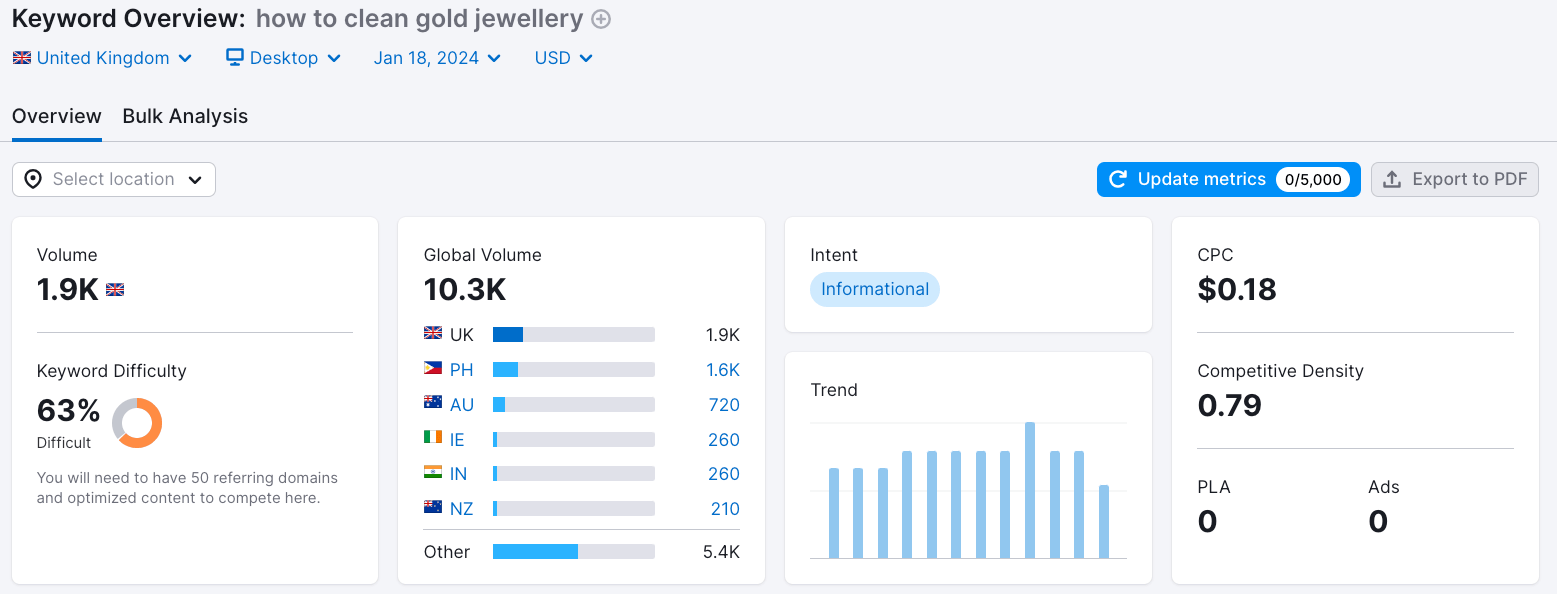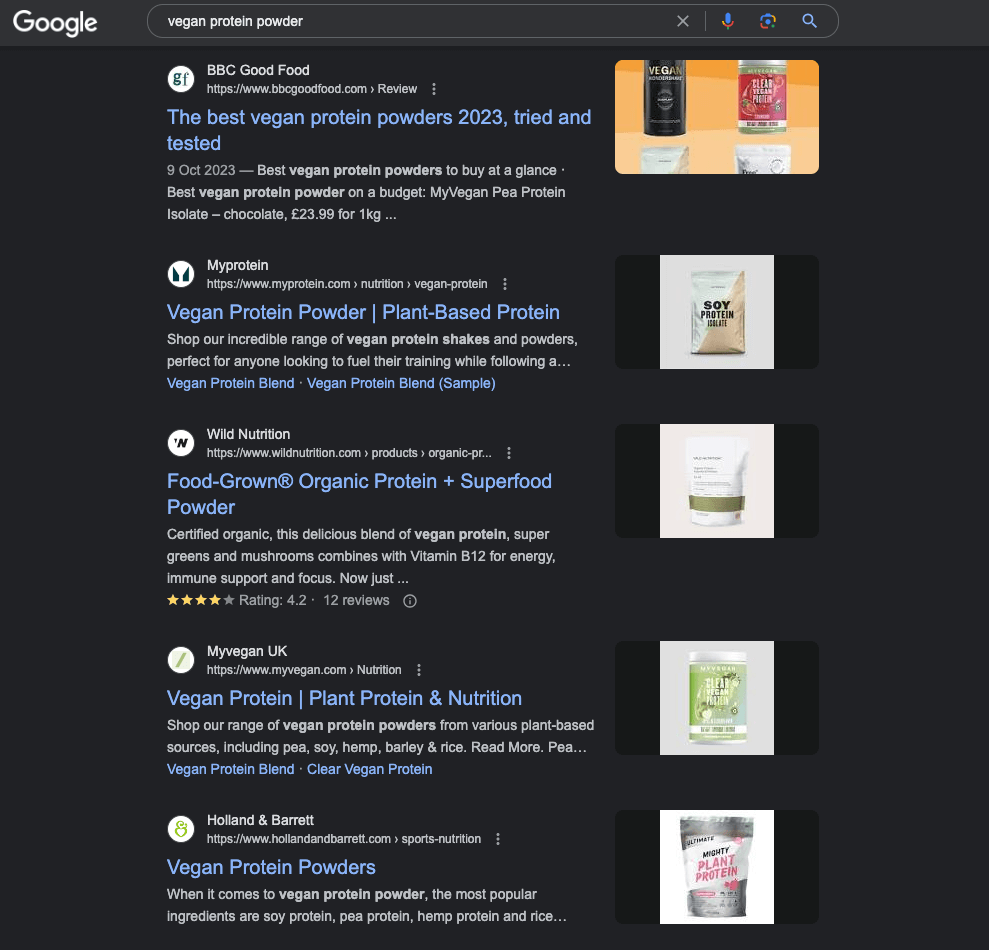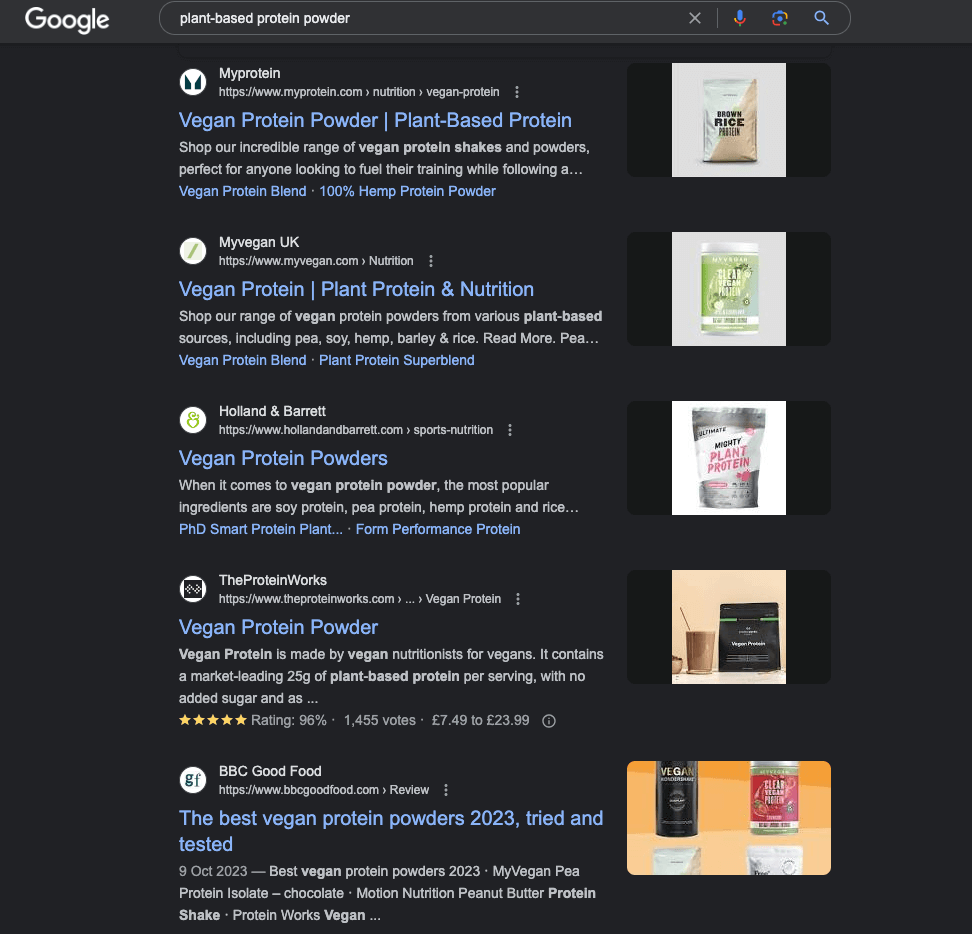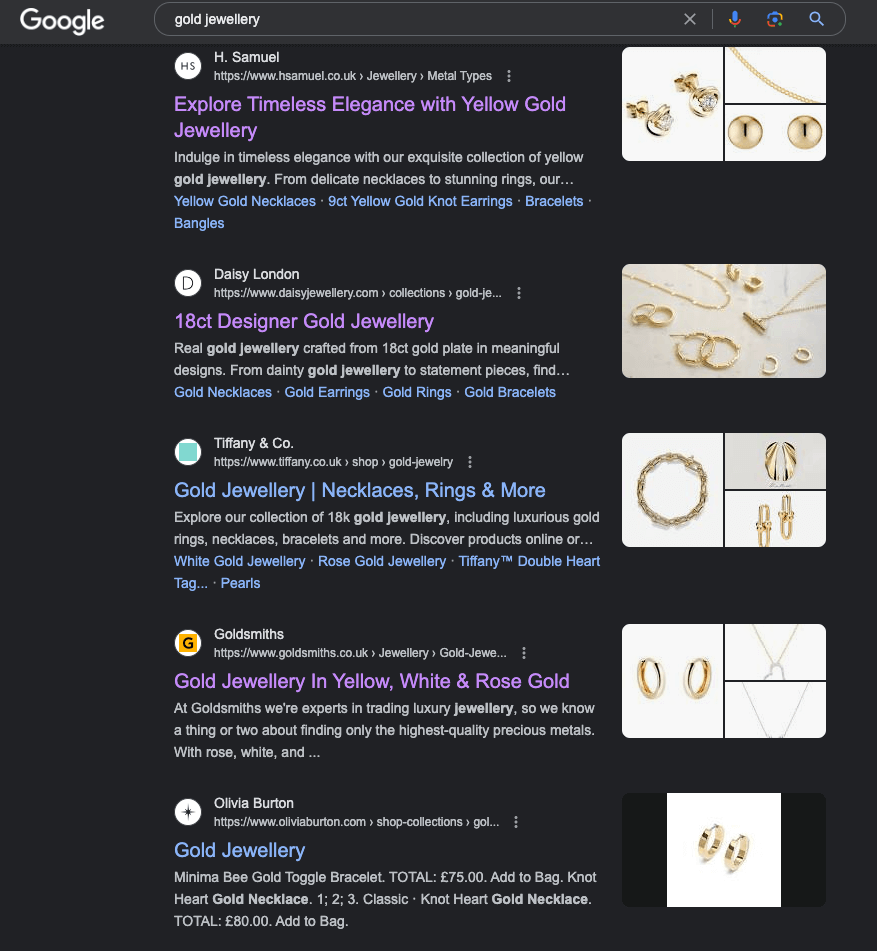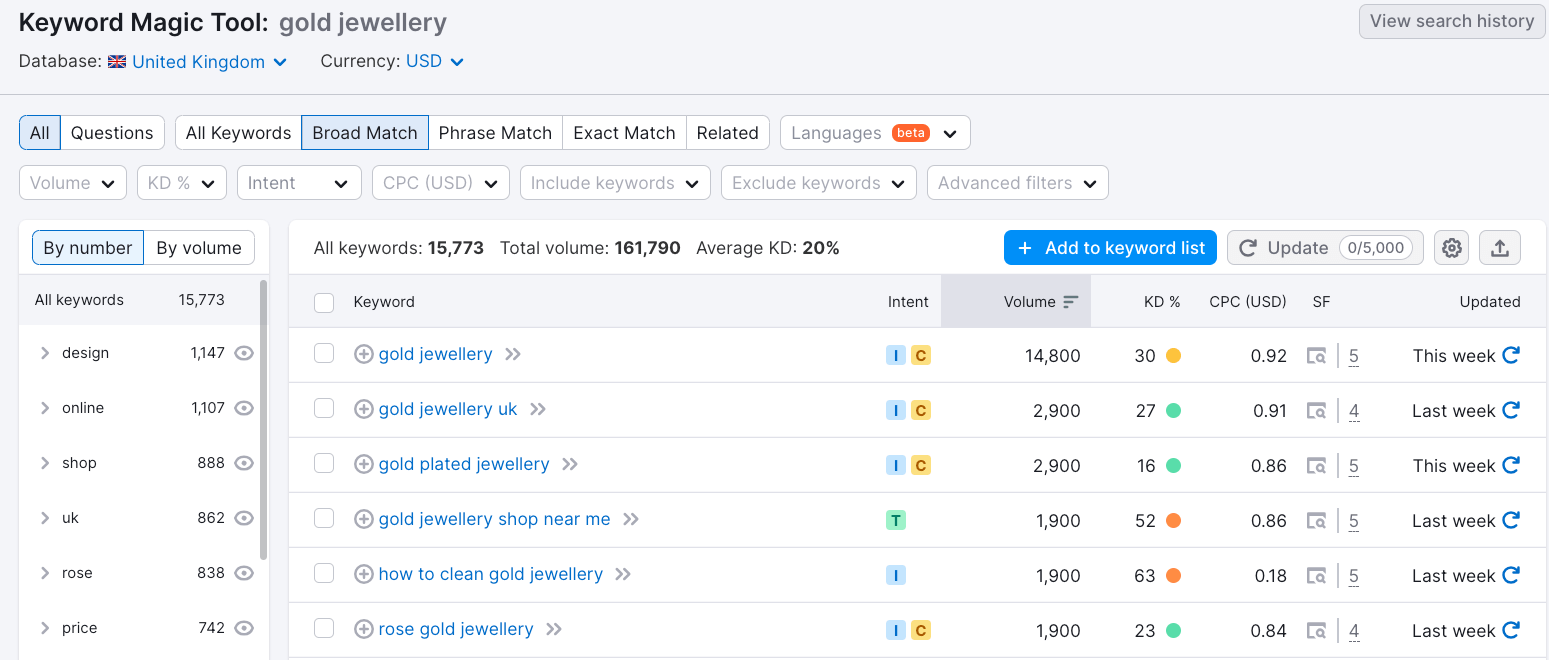
Ecommerce Keyword Research: A Guide for Beginners
Ecommerce keyword research is the process of finding the most relevant search terms for an ecommerce website. This process can help improve the rankings and visibility in the search engine results pages (SERP), thus increasing organic traffic from customers interested in the products offered by an ecommerce website. Therefore, making ecommerce keyword research an integral part of an SEO strategy.
In this blog post, we cover many aspects of ecommerce keyword research to ensure that you can effectively perform keyword research for own or clients’ ecommerce website.
- Why Is keyword research important for ecommerce websites?
- What is the difference in keyword research for ecommerce SEO and traditional SEO?
- How to choose the right ecommerce keywords?
- How to research keywords for your ecommerce SEO strategy?
- What are the common mistakes to avoid in ecommerce keyword research?
- What are the best tools for ecommerce keyword research?
- What tools are there for tracking and analysing ecommerce keyword performance?
- How does voice search affect keyword research for ecommerce?
- How to optimise for international ecommerce keyword research?
- What is the impact of seasonality on ecommerce keyword strategies?
- What is the impact of mobile optimisation on ecommerce keyword selection?
- Elevate Your Ecommerce Keyword Research Strategy
Why Is Keyword Research Important for Ecommerce Websites?
Keyword research is important for ecommerce websites due to several reasons. Firstly, it facilitates search engines in comprehending the topicality of an ecommerce site and discerning the content of its web pages. This ensures that the relevant web pages are appropriately displayed to potential customers in the Search Engine Results Pages (SERP).
Furthermore, keyword research contributes to achieving higher rankings in the SERP for pertinent search terms. Given that the top organic result in Google’s search results page captures 28.5% of all clicks, an upward movement in rankings correlates with improved visibility and increased organic traffic. This, in turn, fosters heightened brand awareness and sustained revenue growth over the long term.
Another advantage of effective keyword research lies in the ability to create a topical map that thoroughly covers a specific subject. This not only provides an understanding of the costs required from a content perspective but also facilitates the establishment of topical authority, bolstering the site’s credibility in the eyes of both search engines and users.
Additionally, staying ahead of competitor strategies is a key aspect of keyword research. Identifying the search terms they are targeting or neglecting helps in closing content gaps and maintaining a competitive edge. This strategic awareness ensures that your ecommerce website aligns with user search queries, enhancing its overall relevance.
Enhancing user experience is yet another outcome of meticulous keyword research. By utilising keywords to categorise products into relevant and logical groupings, ecommerce websites can streamline navigation for users, enabling them to quickly find the products they seek.
For ecommerce websites with a physical presence, localised keyword research allows for targeted marketing to customers in specific geographic areas. This localisation strategy ensures that the website connects effectively with its local audience, potentially leading to increased foot traffic and conversions.
Furthermore, effective keyword research proves beneficial in optimising advertising spend, particularly in pay-per-click (PPC) campaigns. By identifying and utilising low-competition keywords, businesses can maximise the impact of their PPC ads while minimising costs.
Understanding user search intent is another valuable outcome of keyword research. By analysing the terms users are searching for, ecommerce websites can refine their product offerings and content to better align with user expectations and preferences.
Lastly, comprehending search demand and assessing keyword difficulty enables ecommerce websites to prioritise high-return-on-investment (ROI) or low-competition keywords in their content strategy. This strategic prioritisation ensures that resources are allocated efficiently, focusing efforts on keywords that offer the greatest potential for success in the competitive online landscape.
What is The Difference in Keyword Research for Ecommerce SEO and Traditional SEO?
In general, ecommerce websites require more intensive keyword research compared to a normal website such as a blog that only utilises traditional SEO practices. In a blog, keyword research for product and landing pages is not required, only for blog posts. Whereas an ecommerce website requires keyword research for blog posts, product pages, and landing pages.
Additionally, websites that use traditional SEO focus on identifying a broader range of keywords related to information queries and long-tail keywords that answer specific user queries. Whereas, ecommerce sites focus on using keywords related to products, categories, brands, and transactional intent to increase sales and profits.
How to Choose The Right Ecommerce Keywords?
Relevance
Ask yourself whether this keyword is relevant to your brand and the products you currently offer on your website. This will help you understand whether it’s a keyword you should target.
If your ecommerce site doesn’t sell gold necklaces don’t choose the keyword “gold necklaces” to target.
Targeting many keywords that are not relevant to the topicality of your website will not help search engines such as Google understand what your ecommerce site is about, which can negatively affect the rankings of your site in the SERP. Additionally, choosing keywords that don’t reflect the products you sell will not create trust for customers.
Conversely, choosing topically relevant keywords to your website can help establish your site as an expert and authority for users, building trust and making your brand the go to for products and information.
Furthermore, when you have comprehensively covered a topic in its entirety, you can establish topical authority, which can help your ecommerce rank higher in the SERP for these topic related keywords thus driving more organic traffic and sales.
Therefore, it is important to choose keywords that are relevant to your ecommerce business.
Search Intent and User Journey
You must understand the search intent (or user intent) behind a keyword to determine whether you should target it with a web page.
To do this, you must understand that the search intent of a user changes based on the user’s search journey. Below are the four main types of search intent.
Informational: The user is looking for information about a topic e.g., how to wash gold necklaces
Navigational: The user is looking for a specific brand or page e.g., Facebook login
Commerical: The user is researching the products they’re interested in before purchasing them e.g., best boxing gloves
Transactional: The user is looking to take specific actions such as buying a product e.g., buy gold necklaces
For example, if your ecommerce store sells gold necklaces you would create a blog post for informational keywords such as “how to wash gold necklaces” as the user is looking to find information, instead of a product page, which would be more suited for commercial intent terms like “gold necklaces” as the user is researching the product before potentially buying it.
The keyword overview tool from SEMrush provides you with the search intent of a keyword. However, simply searching the keyword in Google and looking at the kind of pages ranking in the top 10 positions of the SERP is arguably the best way to understand the search intent of a keyword.
Search Volume and Keyword Difficulty
You must also know the search volume of a keyword, which is the number of monthly searches. The higher the number the more popular the keyword is as it is being searched more by users.
Knowing the search volume is important because it lets you know what the ROI keywords are, thus bringing in more organic traffic and sales. However, there is a caveat, which is that keywords with a higher search volume tend to be accompanied with a higher keyword difficulty.
Keyword difficulty is a metric used to estimate how difficult it is to rank organically for a particular keyword – a higher keyword difficulty indicates higher competition, which makes it harder to rank for it organically.
For example, the keyword “how to clean gold jewellery” has a keyword difficulty of 63%, which is quite competitive and difficult to rank for unless you combine keyword research with other SEO strategies.
As a result, we recommend targeting the keywords with a low keyword difficulty first then working your way up into the keywords with higher keyword difficulty. This will allow you to pick up traffic while building topical authority, which will make targeting the keywords with high keyword difficulty much easier in the future.
Product Page Keywords vs. Blog Keywords vs. Landing Page Keywords
It’s important to understand the difference between product page keywords, landing page keywords, and blog post keywords, which will help you understand whether you should choose a keyword for your content strategy.
Landing pages and product pages tend to focus on transactional intent and conversion-focused keywords intended to drive sales and profits. For example, the keyword “buy gold jewellery” would be targeted by a product or landing page rather than a blog post.
Product pages also tend to be more competitive than blog posts as they make businesses’ a lot of money, which is why it’s best to target long-tail keywords. Product pages also have limited room to include all the semantically relevant keywords.
Blog posts tend to focus on informational keywords intended to educate the searcher on a specific topic. For example, the keyword “how to clean gold jewellery” would be targeted by a blog post rather than a landing or product page.
Blog posts also tend to have more room to include semantically relevant keywords making it easier to rank a single blog post for multiple different related keywords compared to product pages.
Keyword Cannibalisation
Keyword cannibalisation is when multiple pages on your site are targeting the same keyword, which impacts the ranking of all the pages for that keyword.
Therefore, it’s important to take a proactive approach to keyword cannibalisation by dealing with it before creating pages to target specific keywords – this can be through keyword clustering to determine whether a keyword deserves its own page or can be incorporated into the same page as another keyword.
For example, the SERP for the keywords “vegan protein powder” and “plant-based protein is practically the same (shown below). Therefore, you would create a single landing page that targets both keywords, which would avoid keyword cannibalisation.
The same principle applies to the keywords “how to wash gold jewellery” and “how to clean gold jewellery”. The SERP is the same for both keywords so you would create a single blog post targeting both keywords rather than two separate blog posts. This would prevent keyword cannibalisation and allow you to rank for those keywords without any issues.
Local SEO
Local SEO is the process of optimising your business online presence to increase local visibility, traffic and brand awareness in local search results on Google. Any ecommerce store with a physical location which serves a geographic area can benefit from local SEO.
An analysis of local SEO starts from identifying your local keywords and your local competitors to understand what you can learn from them.
The local keyword research defines the basis for an effective local SEO strategy, and it’s the only way to ensure that your efforts are focused on the right customers interested to shop in the physical shop.
Therefore, it is worth choosing keywords that are relevant to your local area.
How to Research Keywords for Your Ecommerce SEO Strategy?
Create a List of Seed Keywords By Topic
Brainstorm all the keywords that are associated with the products sold on your ecommerce store. For example, if you sell gold jewellery then “gold jewellery” and “gold watches” could be your seed keywords.
Once you have created your list of seed keywords, you can now begin the process of finding the right keywords to target with your web pages.
Reverse Engineer Your Competitors’ Keywords
First, you must find your competitors, which is done by searching for one of your seed keywords in Google and clicking on the top 5 results that appear in the SERP.
When you have a list of your competitors’ websites, you can go Semrush’s Keyword Gap tool where you enter your domain alongside your competitors’s domain.
From the keyword gap tool, you should have a list of keywords that your competitors are targeting but your ecommerce store isn’t. For example, “gold necklace” and “gold earrings”, which is shown below.
SEMrush’s Keyword Research Tool
The Google keyword planner tool is a great way to do keyword research because it’s free and uses data directly from Google. However, here at Autify Digital, we tend to use the Keyword Magic tool provided by SEMrush because it provides additional useful information about the keyword such as search intent, search volume, keyword difficulty, and much more.
All you must do is go to the keyword magic tool, search for your seed keyword in the search bar, pick the country you would like to target, then click search.
The tool will provide you with a list of keyword ideas based on the seed keyword you inputted earlier. In this case, the keyword “gold jewellery” returns 15,000 keyword ideas.
You can always filter these results down based on relevance, search intent, search volume, and keyword difficulty.
Once you know what keywords you want to target, you can then click on the blue button titled “Add to keyword list” and then “Create new empty list”. You can then create a name of this keyword list and click the green check mark button to finally create your keyword list.
Alternatively, you can simply download the list of keywords onto an excel spreadsheet.
Cluster Your Keywords to Build a Topical Map
Keyword clustering (also known as keyword grouping) is the process of putting semantically related keywords together into a group, which is effective as you can target multiple related keywords in a single page instead of using different pages.
For example, the keywords “gold jewellery” and “gold jewellery uk” are very similar so can be targeted using a single page.
This can be done using the Keyword Manager Table where you click “cluster this list”. Alternatively, if your keyword list is on an excel spreadsheet then you would need to create new tabs with all the keywords that each page would target.
Keyword clustering is a great way to build topical authority as you are covering a topic and the subtopics more comprehensively.
What are The Common Mistakes to Avoid In Ecommerce Keyword Research?
Below is a list of common mistakes to avoid when conducting keyword research for your ecommerce store.
- Neglecting search intent
- Letting clients pick the keywords
- Not looking at the SERP
- Only targeting one keyword per page
- Only choosing high search volume keywords
- Avoiding long-tail keywords
- Not interacting with your customers to gather further information
- Going back to pages to only insert keywords rather than naturally adding keywords when creating them
- Not having an awareness of all the various channels your customers search on
- Choosing exact match keywords without editing the language to be more natural
- Not understanding keyword localisation
- Not performing topical research
- Not looking at the keywords your SERP competitors are ranking for
- Ignoring keyword difficulty
- Ignoring keywords with higher conversion rates
- Doing keyword research only once
- NoT considering keyword cannibalisation
What Are The Best Tools for Ecommerce Keyword Research?
There are many ecommerce keyword research tools out in the market that can help simplify your keyword research process.
Here at Autify Digital, we have used many keyword research tools over the years due to the work we do with clients so have a good understanding of the various tools used for ecommerce keyword research.
Below are some of the best tools for ecommerce keyword research.
What Tools are There for Tracking and Analysing Ecommerce Keyword Performance?
We use the position tracking tool and the organic research tool provided by SEMrush to track and measure the performance of specific keywords in the SERP.
However, we find that Google Search Console and Google Analytics 4 tend to me more reliable and accurate when tracking the performance of keywords as they use data directly from Google.
Google Search Console provides you with data over the last 16 months about the number of clicks, the number of impressions, the click-through-rate (CTR), and the average ranking of pages for specific keywords in the SERP.
This is important information as it informs you about keywords that are targeted by pages and whether there is keyword cannibalisation, whether a page needs to be updated to better target a keyword as it has been dropping in visibility and organic traffic, whether you should re-write title tags and meta descriptions for specific pages as they have a low CTR, whether you need to create a cluster of pages around a specific keyword as the main keyword is performing well, or whether you have keywords in positions 5 to 10 within the SERP so need backlinks to help push them higher in the SERP.
Alternatively, you can gain the same information on Google Analytics 4 by going to the “Queries” report under “Search Console” integration.
As you can see there is a wealth of information and knowledge that can be obtained from checking the keyword performance on Google Search Console or Google Analytics 4.
How Does Voice Search Affect Keyword Research for Ecommerce?
40% of millennials have used voice assistants to make a purchase and this figure is expected to rise. Therefore, you need to understand how voice search can impact your keyword selection process.
Voice searchers tend to use natural language thus asking longer questions instead of typing in short, specific keywords. Therefore, content should be optimised around more long-tail keywords and questions.
In addition, if you generate questions from keywords, the search engine won’t need to generate these questions itself. Therefore, you are making your content more clear and easier to process by the search engine.
For example, if you write just “jewellery cleaning”, the search engine will need to generate the question “how to clean jewellery” by itself then process your answer and then connect it back to the generated question.
To make this more complex, the question generated by the search engine is just a possibility whereas, if you give the question directly, it will be easier for creating a better responsiveness and question and answer pairs.
Therefore, it important to understand semantics and semantic SEO.
How to Optimise for International Ecommerce Keyword Research?
Optimising for international ecommerce keyword research involves navigating the complexities of diverse markets, languages, and cultural nuances. Successfully expanding your reach across borders requires a strategic approach to keyword research that acknowledges the unique challenges of international business. Below are key considerations and steps to optimise for international ecommerce keyword research.
Understanding Cultural and Linguistic Differences
In international ecommerce, language is a critical factor. Recognise that keywords may have different meanings or connotations across cultures. Start by conducting thorough market research to understand the local language variations, colloquialisms, and cultural sensitivities.
Utilise native speakers or language experts to ensure accuracy in keyword selection and messaging. Additionally, consider regional preferences and trends that might influence how users search for products or services in specific locales.
Localisation of Keywords and Content
Localisation goes beyond translation; it involves adapting keywords and content to resonate with the target audience in a specific region. Tailor your keyword strategy by incorporating region-specific terms, currency symbols, and measurements.
This approach enhances the relevance of your content and increases the likelihood of attracting local customers. Remember that users in different regions may use distinct search terms, even when seeking the same products or services.
Leveraging Country-Specific Keyword Tools
Different regions may have their preferred search engines and keyword tools. Utilise country-specific keyword research tools to gain insights into local search behaviour.
Platforms like Yandex in Russia or Baidu in China might have distinct keyword trends compared to more globally used tools like Google Keyword Planner. Adapting to these regional variations will give you a competitive edge in understanding and targeting local search landscapes.
Monitoring and Iterating
International ecommerce markets are dynamic, and user behaviours can change over time. Regularly monitor the performance of your chosen keywords and adjust your strategy accordingly. Stay informed about emerging trends, shifts in consumer behaviour, and updates to search engine algorithms.
Consider employing analytics tools to track the effectiveness of your international keyword strategy and make data-driven decisions for ongoing optimization.
What is The Impact of Seasonality on Ecommerce Keyword Strategies?
Seasonality profoundly influences ecommerce keyword strategies, demanding a dynamic and adaptive approach to capitalise on changing consumer behaviour throughout the year. Seasonality could be in the form of weather, holidays, and cultural events.
An example of this is during summer, consumers may be searching the keywords “swimwear” more thus increasing the search volume while in the winter, they may be searching the keyword “winter jackets” more.
Therefore, you would prioritise targeting these keywords at the appropriate time if you are an ecommerce store that sells these products. This could be in the form of adding new products to your website or simply incorporating seasonal keywords naturally into the content to better optimise the page for the target keyword.
Seasonal keywords related to discounts such as “discounted winter jackets” could help expand the number of relevant keywords a product or landing page already ranks for, which could help increase organic traffic and sales.
One way to predict seasonal trends in keywords is to look at the historical data for the sales of your ecommerce store and compare it to the findings in google trends, visibility and traffic in Google Search Console, and search volume in keyword research tools. This will help you plan your keyword strategy going forward.
Adapting to seasonality can position your brand as a leader that puts the needs of the customer first, which builds trust and loyalty. This could result in more users searching your brand in the SERP, which signals your authority to search engines and thus helps rank your content higher in the SERP.
What is The Impact of Mobile Optimisation on Ecommerce Keyword Selection?
Following our guidance on ecommerce keyword research will put you in a great position to succeed in ecommerce SEO. However, this may not be the case if your ecommerce website is still optimised for desktop and not for mobile.
Search engines such as Google, have fully transitioned to mobile-first indexing, which means they prioritise websites that are mobile-friendly when crawling and indexing content. Search engine bots will still crawl the desktop versions of websites that aren’t mobile-friendly but as time goes on the company will reduce the crawling of desktop pages to preserve limited resources.
Therefore, it’s best if you make your ecommerce store mobile-friendly so that your keyword research strategy can have the best chance to improve the rankings, visibility, and organic traffic in the SERP.
Elevate Your Ecommerce Keyword Research Strategy
In this blog post, you have learnt that keyword research is a vital component of an ecommerce SEO strategy as it aligns your offerings with what customers are looking for in the SERP, which can help drive organic traffic, sales, and profits.
At Autify Digital, we can help you conduct keyword research for your ecommerce store.
Over the past three years, we’ve helped many businesses to increase their visibility and organic traffic through our ecommerce SEO Services so be sure to contact us.
Post navigation
Read More Blogs

14 WooCommerce SEO Tips for Better Rankings
WooCommerce SEO guide. We cover everything from optimising page titles and URLs

12 Common UX/UI Web Design Mistakes and How to Fix them
Nowadays everything is about the experience. When a user reaches your website,

8 Cyber Security Essentials for SMEs in 2024
Every day, businesses find new ways to leverage digital technologies for
connect
Let’s Get to Work
Want to get your business noticed? We can’t wait to see how we can support you. Get in touch today and let’s get to work!
Get Started
